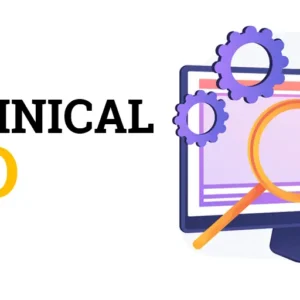
Key Highlights
- Understanding how avoiding prevalent SEO errors in 2025 can significantly enhance your search rankings and generate a more consistent flow of organic traffic.
- Recognize the essential aspect of aligning your content with search intent to fulfill user needs and increase its value in Google’s search outcomes.
- Discover the importance of ensuring your website is mobile-friendly and has rapid loading speeds, as these factors contribute to a positive user experience and reduce bounce rates.
- Obtain actionable steps to improve your internal linking, implement local SEO strategies, and enhance your technical SEO to increase visibility in search engine results.
- Explore recommendations tailored for businesses in New York. Utilize these strategies for local SEO to achieve better performance in local search engine rankings over time.
- Learn to leverage tools such as Google Analytics and structured data, which assist in monitoring and promptly rectifying SEO errors.
Introduction
SEO is constantly evolving due to changes in search engine algorithms and increasing user expectations. In 2025, common SEO errors can lead to rapid declines in your rankings. Such issues may also result in a loss of organic traffic. Factors such as failing to align your content with user needs, neglecting site speed, or overlooking mobile optimization can adversely affect your outcomes. This will degrade the user experience and diminish your SEO performance. Whether your focus is on local SEO, such as in New York, or enhancing your site with structured data for long-term benefits, a solid SEO strategy is essential for growth. Let us discuss the most significant SEO mistakes to avoid if you aim for favorable results.
📊 Free SEO Strategy Guide
Learn proven SEO techniques, content strategies, and ad campaigns to boost your website traffic.
📥 Get In Touch8 SEO Mistakes to Avoid in 2025 for Top Rankings
The digital landscape does not offer second chances for poor SEO practices. Many individuals err when they neglect to prioritize users or continue to employ outdated SEO methods. For instance, overlooking search intent or utilizing low-quality content can result in diminished organic traffic to your site. This may also tarnish your brand’s reputation. Modern optimization encompasses more than merely focusing on keywords. The objective is to create positive experiences for your audience. This guide will illuminate eight critical SEO errors to avoid in 2025. Additionally, it will provide you with strategies to develop a robust and effective SEO plan.
1. Overlooking Search Intent Alignment
Are you creating content without first understanding your audience’s needs? One of the major SEO errors in 2025 is neglecting to consider search intent. Search intent refers to what individuals are genuinely seeking when they conduct an online search. Are they looking to learn more about a subject, or are they interested in purchasing a product? If your content does not align with their expectations, you may attract the wrong visitors to your page. This can significantly impact your engagement rates.
For instance, suppose you aim to rank for “best sneakers” but only discuss the product’s features. If you fail to include comparisons or reviews, your page may struggle to perform well in Google’s search results. Google favors content that is helpful. Your page should provide clear answers to users’ inquiries and incorporate relevant keywords appropriately.
Furthermore, it is beneficial to create content with your target audience in mind. This approach fosters brand trust, as individuals seek valuable information that meets their requirements. Focus on producing helpful content that addresses problems, recommends purchases, or delights readers with what they discover. By doing so, you can avoid attracting the wrong type of traffic and improve your rankings.
2. Ignoring Mobile Optimization and Responsiveness
Mobile web browsing has surpassed desktop usage for quite some time. Therefore, prioritizing mobile optimization is essential for enhancing user experience and achieving success in search engine rankings. A website lacking responsive design risks alienating a significant portion of its audience, which can adversely affect its search engine performance.
With the implementation of Google’s mobile-first indexing, the search engine predominantly evaluates your mobile site first when determining page rankings. Consider a scenario where a website features non-functional buttons or text that is too small to read. Users may swiftly abandon the page, resulting in elevated bounce rates. Such issues negatively impact user perception of your site, contribute to increased bounce rates, and ultimately diminish your search rankings.
To prevent these challenges, ensure that your website is adaptable and can accommodate all screen sizes. Additionally, maintain straightforward navigation, and ensure that pages load quickly. A visually appealing layout across all mobile devices is essential. Tools such as Google Pagespeed Insights can provide insights on necessary improvements. Ultimately, by concentrating on robust, responsive design for all users, you enhance both your organic traffic and search engine rankings.
3. Keyword Stuffing and Unnatural Keyword Usage
Keyword stuffing is a dated practice in SEO that many marketers inadvertently continue to employ. Incorporating target keywords in a manner that appears forced can render the content difficult to read. Additionally, it may incur penalties from search engines. It is essential to provide valuable information to the reader rather than merely lengthy meta descriptions or awkward anchor text.
For instance, refrain from excessively repeating “best fitness apps” within a single paragraph. Instead, incorporate related terms or synonyms to ensure your writing flows naturally. An overabundance of anchor text in one location can make your content appear spammy. This may also give the impression that you are attempting to deceive the search engine, so it is advisable to steer clear of such practices. Utilize your keywords intelligently instead.
An effective SEO strategy entails maintaining smooth writing while appropriately using relevant keywords. Prioritize your audience’s needs. Integrate just the right amount of SEO elements to assist them. Consider utilizing tools like Clearscope, which help keep your text clear and straightforward, thereby avoiding SEO penalties. Concentrate on employing keywords that align with your topic rather than solely relying on identical phrases. This enhances the user experience and simultaneously benefits SEO!
4. Publishing Duplicate or Thin Content
Duplicate or low-quality content can significantly undermine your SEO initiatives. This situation may result in your website experiencing poor rankings and a lack of trust from users. When identical product descriptions are utilized across multiple pages, search engines may become perplexed regarding which page to prioritize. Consequently, this can lead to a decline in the rankings of both pages.
Search engines prefer to encounter unique content. High-quality original content provides users with valuable insights. Such content aligns with what users seek and corresponds to their search intent. Ensure that each page does not merely recycle outdated information. Introduce a fresh perspective or present diverse ideas to enhance your authority in the field.
You can utilize tools such as Screaming Frog to identify duplicate content on your site. Upon discovery, eliminate the outdated or redundant elements and consistently strive to produce high-quality content. Offer your visitors value with every page. By prioritizing the reader and emphasizing originality, you will achieve significant progress.
Employing high-quality and original content enhances your SEO efforts. It fosters trust among users and search engines regarding your site. This is what will encourage them to return repeatedly.
5. Neglecting Technical SEO Fundamentals
Technical SEO plays a crucial role in the success of your website, facilitating easier discovery and usage for visitors. It is essential to remember elements such as descriptive URLs, accurate meta tags, and alt text. These fundamental aspects significantly enhance your search engine optimization, ensuring that users can navigate your pages without difficulty.
Google Search Console is a valuable tool that allows you to identify any technical SEO issues present on your site. It can reveal problems such as broken links or duplicate pages. This tool enables you to detect and resolve these concerns. By addressing the fundamentals, you provide search engines with a clear pathway to locate and comprehend your content, which benefits your SEO strategy.
Neglecting alt tags, for instance, negatively impacts your site’s accessibility and results in missed opportunities to incorporate vital keywords. Creating pages with logical URLs also fosters user trust and simplifies navigation throughout your site. Remember: technical SEO encompasses more than merely correcting errors. It involves maintaining clarity and precision on every single page. Strong technical details benefit both users and search engine crawlers, enhancing your ranking and improving user experience on your site.
6. Poor Internal Linking Practices
Effective internal linking facilitates seamless navigation for both users and search engines across your website. Many individuals fail to recognize the significant impact that a robust internal linking strategy can have. Neglecting this aspect can adversely affect your site’s architecture and diminish your SEO effectiveness. Employ pertinent anchor text to interconnect your web pages. This not only simplifies navigation for users but also enhances your site’s authority. By linking to your primary or cornerstone content and maintaining a clear, logical structure, your SEO initiatives will yield better results. Consequently, this will increase your organic traffic and elevate your search rankings, particularly in platforms such as Google’s search results.
7. Failing to Optimize for Local SEO in New York
Ignoring local SEO can negatively impact the ease with which individuals in New York can discover your business. By implementing effective strategies, such as ensuring your Google Business Profile is current, you enhance your small business’s visibility in local search outcomes. It is crucial to incorporate city-specific keywords and tailor your content to align with the interests of local residents. This approach not only increases user engagement but also results in higher sales or actions on your website. Establishing relevant local citations and obtaining authentic customer reviews contribute to demonstrating your brand’s integrity. This significantly influences both user experience and your ranking in search results. By prioritizing these aspects of local SEO and not overlooking them, your business is more likely to evade issues stemming from inadequate SEO practices.
8. Underestimating the Importance of Site Speed
Fast-loading web pages play a crucial role in enhancing user experience and improving search engine rankings. The speed of a website can significantly influence bounce rates. If your site operates slowly, visitors may exit before engaging with any content. This negatively affects your potential to attract more organic traffic. Neglecting this essential aspect may result in falling behind competitors who prioritize site speed. Utilizing tools such as Google PageSpeed Insights can be beneficial in identifying issues with your web pages, allowing you to address them effectively. This approach will ensure that your SEO strategy incorporates fast loading times. When users enjoy a seamless and rapid experience on your site, they are more likely to take action, which can ultimately lead to increased conversion rates.
Why Avoiding These SEO Mistakes Matters in 2025
Neglecting prevalent SEO errors can significantly impact a website’s position in search engine results, making it increasingly difficult for users to discover or navigate the site in 2025. Such SEO errors can lead to a decline in your search engine rankings, resulting in reduced organic traffic and diminished user engagement on your site. The most effective approach to counter this is to establish a well-defined SEO strategy tailored to enhance user experience. It is essential to concentrate on what users seek when utilizing search engines and ensure that your site aligns with their expectations. This practice enables you to remain informed about the evolving dynamics of search engine operations.
Additionally, it is crucial to focus on aspects such as site speed and internal linking. These elements facilitate quicker navigation for visitors, allowing them to locate the information they desire more efficiently. By mastering these fundamental components, you can attract a larger audience and encourage them to spend more time on your site. This foundation can position you for success, even amidst intense online competition.
Impact on Google Rankings and Organic Traffic
Optimization strategies significantly influence Google rankings and organic traffic. An effective approach to SEO involves ensuring that elements such as internal linking, relevant keywords, and site speed adhere to search engine guidelines. Employing poor SEO practices can lead to high bounce rates and reduced visibility in search engine results, ultimately harming your site’s presence.
By managing these aspects effectively, you can enhance the user experience and align with users’ search intent. This alignment contributes to improved conversion rates. As competition for visibility in search engine results increases, it is crucial to stay updated on these SEO components. This proactive approach helps maintain your site’s top position and ensures a consistent flow of traffic.
How User Experience Influences SEO Performance
User experience, commonly referred to as UX, plays a crucial role in achieving optimal SEO performance and enhancing search rankings. Factors such as rapid page loading times, mobile-responsive design, and intuitive navigation facilitate seamless interaction with web pages. A well-organized and user-friendly site captivates users and reduces bounce rates, signaling to search engines that the web pages contain valuable content.
Additionally, crafting clear meta descriptions and incorporating informative alt text significantly contribute to an excellent user experience. This approach aids both users and search engines in swiftly and effortlessly locating the information they seek on your website.
How to Identify and Fix Common SEO Mistakes
Diligently reviewing your web pages allows you to identify frequent SEO errors. Using SEO audit tools, such as Google Search Console, can reveal issues like broken links, duplicate content, or ineffective meta tags. These tools inform you about what needs to be corrected and what modifications should be implemented.
Additionally, you should monitor your performance through Google Analytics. Track how users interact with your website and assess the loading speed of your site. This information enables you to make informed updates. Always examine your bounce rates and organic traffic to enhance your SEO strategy. Engaging in this practice ensures that your web pages maintain high positions in search rankings and attract more visitors from Google search.
Using SEO Audit Tools Effectively
Utilizing SEO audit tools effectively can enhance your search engine optimization efforts. By employing these tools, you can identify issues such as slow site speed, problems with internal linking, and duplicate content on your web pages. Conducting regular audits ensures that your site remains aligned with the latest search engine guidelines. This practice will improve your web pages’ search rankings and increase organic traffic.
When you utilize platforms like Google Analytics and Google Search Console, you gain valuable insights about your website. This data can significantly strengthen your SEO strategy. Adopting a data-driven approach is beneficial as it enables more users to discover you through Google search, while also enhancing the user experience. A positive user experience is crucial for retaining your target audience.
Monitoring Performance Metrics in Google Analytics
Effective SEO begins with consistently monitoring your website’s performance through Google Analytics. By analyzing aspects such as user behavior, engagement levels, and the sources of your organic traffic, you can identify trends that indicate the success of your SEO strategies. For instance, examining metrics like bounce rates, session duration, and the number of pages viewed per session can provide valuable insights into user experience and search intent. By reviewing these statistics, you can enhance your content, improve your internal linking structure, and optimize your site to achieve higher search rankings. This approach ensures that your website remains aligned with evolving search engine standards and improves over time.
Advanced Strategies to Stay Ahead of SEO Mistakes
To maintain a competitive edge in search engine optimization, it is crucial to proactively address potential issues before they arise. This entails closely monitoring the evolving dynamics of search engine algorithms. Regularly reviewing algorithm updates ensures that your SEO strategies remain effective and current. Implementing elements such as structured data and schema markup can enhance the visibility of your web pages in search engine results, thereby increasing the likelihood of attracting more visitors to your site.
Additionally, it is beneficial to develop comprehensive buyer personas. These personas assist in aligning your content with the search behaviors of users, a concept referred to as search intent. Ensuring that your website features a responsive design guarantees a positive user experience across all devices. This approach not only drives increased organic traffic but also contributes to the overall enhancement of your SEO performance.
Keeping Up with Algorithm Updates
Keeping abreast of modifications to search engine algorithms is crucial for maintaining high search engine rankings. Google and other search engines frequently adjust their algorithms to enhance user experience and improve search results. When SEO professionals regularly monitor for updates, they can swiftly adapt their strategies. This may involve revising anchor text or refining meta descriptions to achieve better performance. By prioritizing the creation of original content and considering user needs, your web pages appear more valuable. Being informed about these updates also prevents individuals from inadvertently employing outdated SEO techniques. By analyzing data in Google Search Console, businesses can identify areas requiring improvement. This approach contributes to achieving favorable outcomes over time.
Leveraging Structured Data and Schema Markup
Enhancing your website’s performance in search results can be significantly improved through the use of structured data and schema markup. These tools assist search engines in understanding the content of your site. As a result, your website is more likely to appear in rich snippets. When users encounter this, it can elevate your site in search engine rankings and increase organic traffic. Users are more inclined to click when they discover the information they seek. Additionally, implementing schema markup informs search engines about your target keywords and other crucial data. This contributes to keeping visitors on your page longer and provides them with an improved user experience.
Conclusion
Maintaining consistency in avoiding SEO errors is crucial for sustaining high search rankings in 2025. By prioritizing correct practices, such as implementing effective internal linking, enhancing local SEO, and improving site speed, your business can attract increased organic traffic. Focusing on user experience aligns with Google’s guidelines, which in turn encourages greater engagement with your website. By consistently monitoring for issues and addressing them, you will gain a competitive edge in digital marketing. It is essential to remain vigilant to changes and adopt new SEO strategies. This approach ensures enduring success.
Frequently Asked Questions
What is the most common SEO mistake businesses make in New York?
The prevalent SEO error that companies in New York commit is neglecting local optimization. Numerous businesses fail to establish or refresh their Google Business Profile, resulting in missed opportunities to attract nearby individuals. This oversight can adversely affect their search rankings and diminish their web traffic. Maintaining an effective Google Business Profile is essential for anyone aiming to excel in local search results.
How can I recover from a Google penalty caused by SEO mistakes?
In order to recover from a Google penalty, it is essential to examine your website for the issues identified by Google. Review the penalty notice for any SEO errors. These may include poor-quality links or subpar content. Remove these elements or enhance your content accordingly. Once you have addressed these issues, submit a request to Google for a reevaluation of your site.
Are traditional link-building strategies still effective in 2025?
In 2025, traditional methods of link building may still hold some value; however, their effectiveness has diminished compared to the past. Nowadays, individuals prioritize acquiring high-quality links over accumulating numerous low-quality ones. The key focus should be on establishing genuine connections and ensuring that the links are relevant to the subject matter. To maintain visibility and credibility online, it is essential to adapt to emerging strategies.
How often should I audit my website for SEO errors?
Regularly reviewing your website for SEO errors is crucial. Aim to conduct this review at least once every three months. However, performing it monthly can yield even more favorable outcomes. By doing so, you can identify issues early and address them promptly. This approach will help maintain the strength of your website and improve its performance in search rankings.














